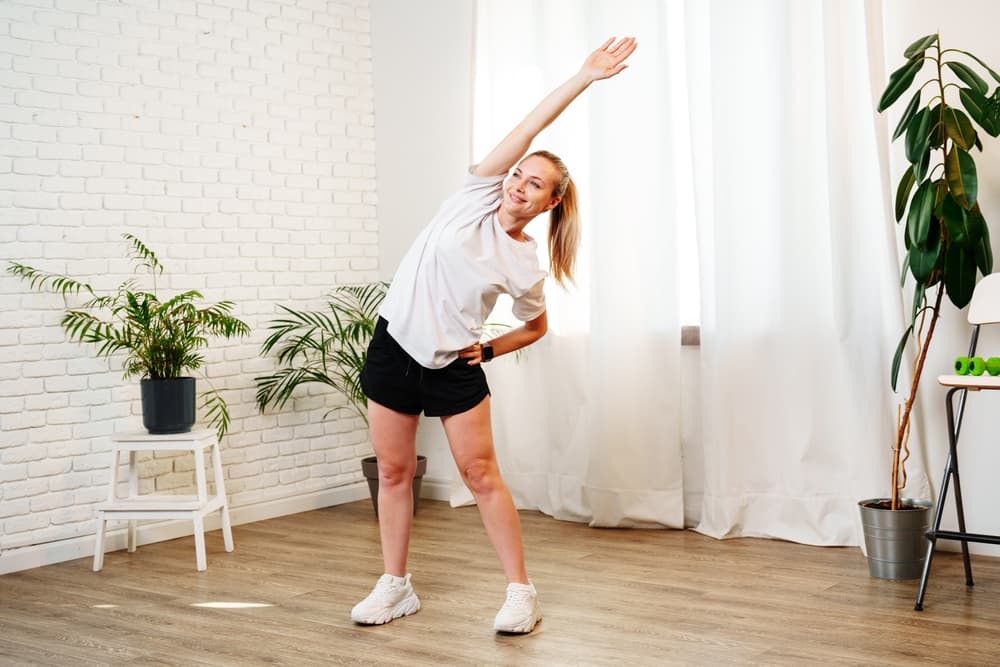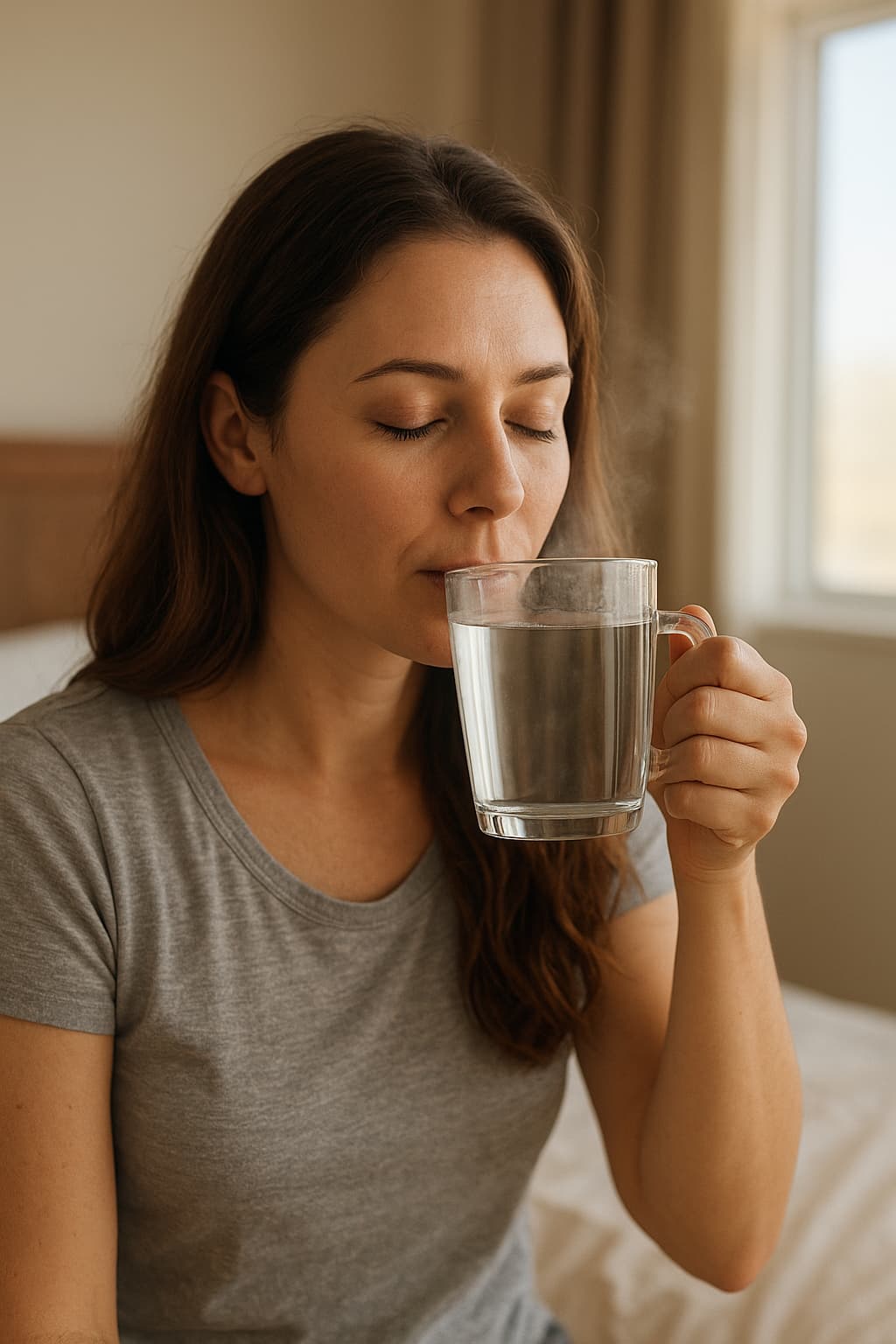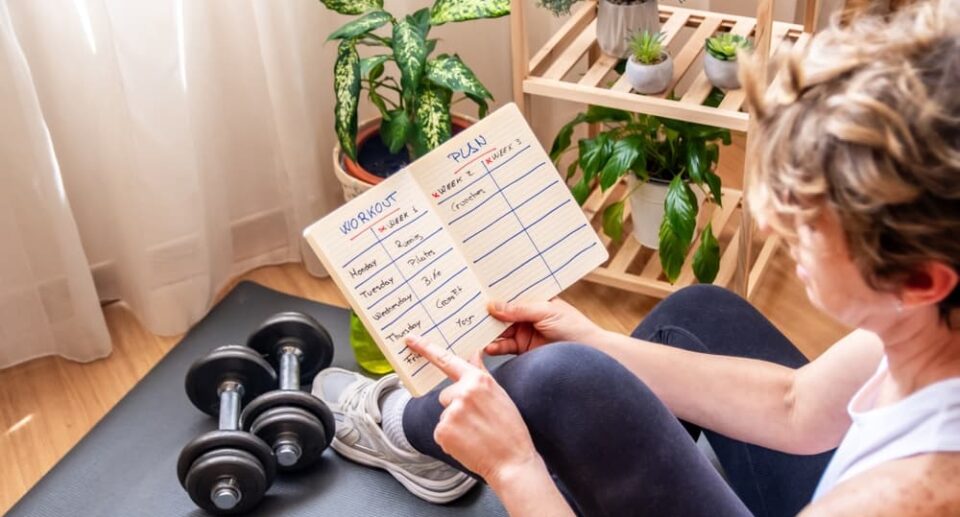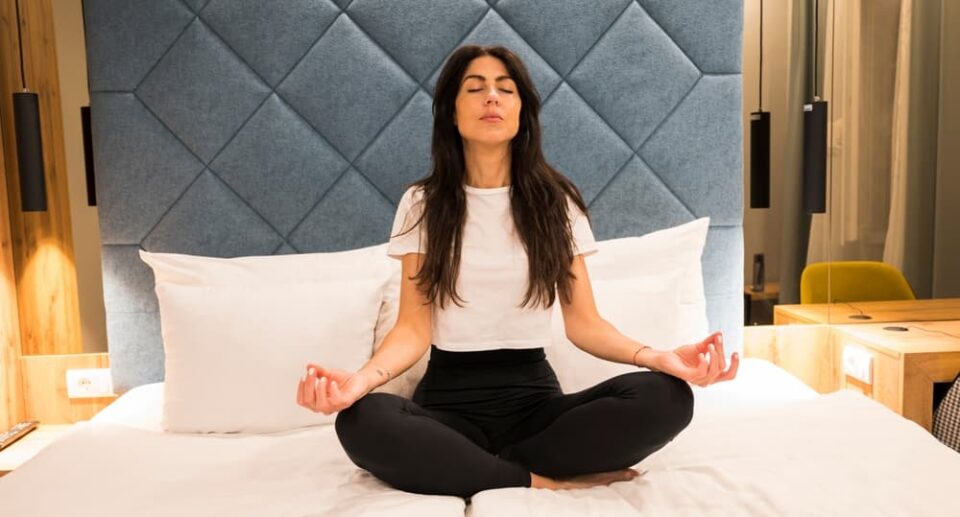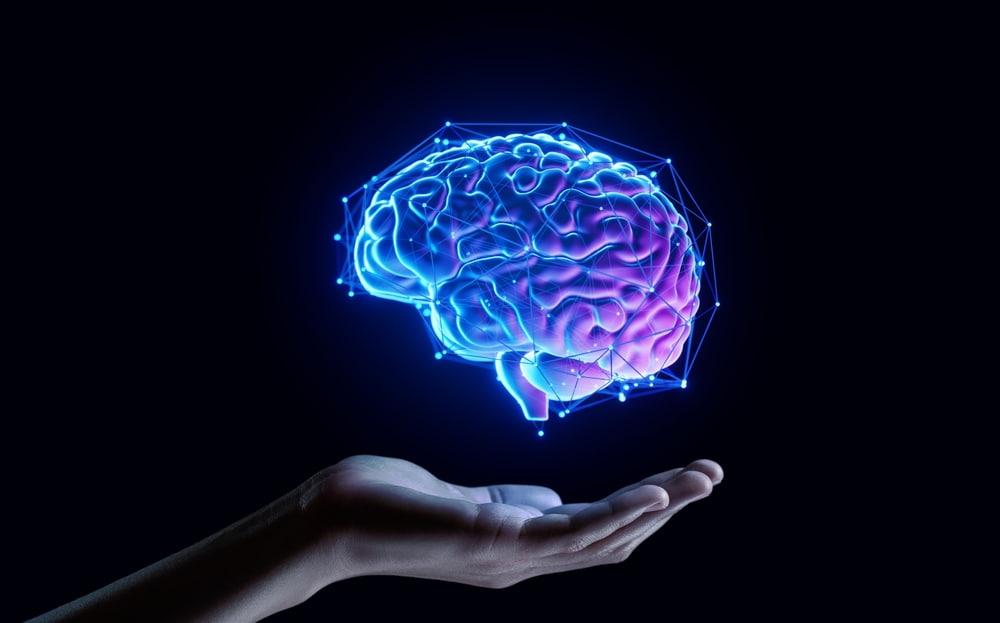The connection between screen time and sleep problems
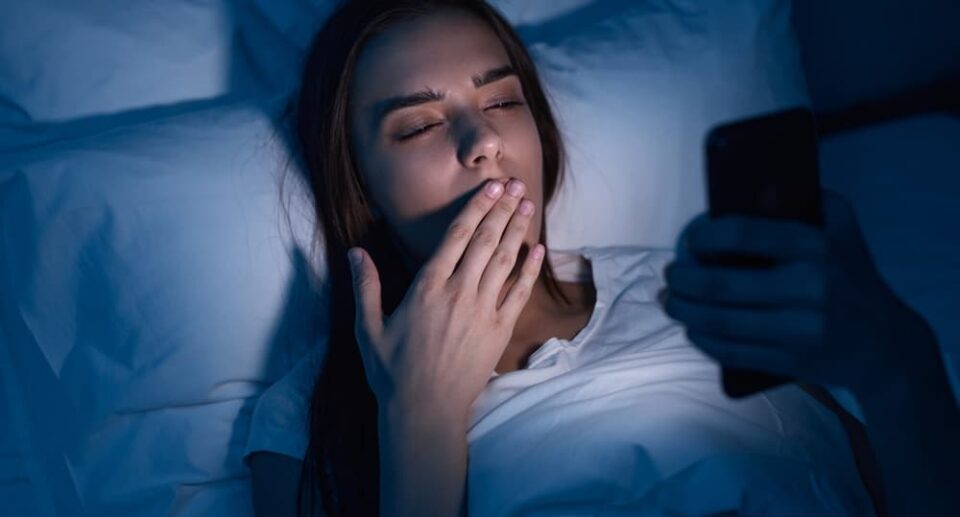

Scrolling through your mobile or watching a series before going to bed has become a habit for almost all of us. But did you know that this seemingly innocent habit is ruining the quality of your sleep? Various studies have shown that excessive screen time disrupts the natural sleep-wake cycle of our brain, resulting in delayed sleep, reduced sleep depth, and fatigue in the morning.
A study by Harvard Health Publishing has mentioned that the blue light from mobiles or laptops reduces the secretion of the hormone melatonin in our body, which helps us sleep. As a result, spending more time on the screen at night means diminished sleep quality and also has a negative impact on attention and mental stability.
In today’s article, we will learn how screen time affects our sleep and how we can improve the quality of our sleep through small changes.
How does screen time affect sleep
Blue light inhibits the secretion of melatonin
This is the most important and scientific reason why sleep is affected by screen time.
What is Melatonin? Melatonin is a hormone secreted by the pineal gland in our brain. It is called the ‘sleep hormone’ because it regulates the body’s internal clock or circadian rhythm. As daylight decreases, its secretion increases in the evening or at night, which signals the body to be ready for sleep.
Effect of blue light: Blue light is emitted from smartphones, tablets, computers, and LED screens. This blue light is similar to daylight.
Inhibition mechanism: When we look at the screen just before going to bed or lying in bed, the retina of the eye receives that blue light and sends a signal to the brain that there is still daylight. As a result, the pineal gland reduces or delays the secretion of the hormone melatonin.
Result: When melatonin production decreases or starts late, we have a delay in falling asleep, which is a major cause of insomnia.
Increased mental stimulation and alertness
Screen content affects our mental state, which disrupts the calm environment needed for sleep.
Stimulating content: Scrolling through social media, watching interesting videos, playing exciting games, or checking work emails all activate the brain.
Attention-grabbing: This type of interactive content keeps our attention and creates excessive activity in the brain. As a result, the brain cannot calm down or relax.
Result: When mental stimulation increases before bed, the body cannot easily prepare for rest, which makes it difficult to fall asleep, and the quality of sleep may also be poor.
Sleep time displacement


This is a simple process where screen time reduces the time allocated for sleep.
Time slippage: When we spend long periods of time at night immersed in screens (such as watching series late into the night or using social media), we unknowingly lose valuable time allocated for sleep.
Short sleep: This reduces the total duration of sleep, resulting in sleep deprivation or poor sleep.
The result: Insufficient sleep can lead to fatigue, lack of focus, and irritability the next day.
Common Sleep Problems and Symptoms
Major Sleep Problems and Disorders
Two main problems can occur in adults due to screen time
Insomnia


This is the most common problem. It is a result of blue light suppressing the release of the hormone melatonin and mental stimulation.
Delayed sleep onset: Not falling asleep for more than 30 minutes after going to bed. Screen stimulation prolongs the brain’s arousal.
Inability to maintain sleep: Waking up repeatedly during the night and not being able to fall back asleep easily. Notifications from devices can cause this problem.
Delayed sleep cycle disorder
The body’s natural clock (circadian rhythm) is delayed due to the blue light from screens.
Late bedtime and late wake-up: The person goes to bed much later than usual and wakes up later as a result. For example, if someone goes to bed at 2 am, it will be difficult for them to wake up at 7 am.
Workplace Impact: Often, these individuals have to wake up early in the morning due to work or social obligations, which deprives them of adequate sleep at night.
Common Symptoms
The following everyday symptoms are observed due to screen time-related sleep problems:
Nighttime Symptoms
Alertness and brain restlessness: The brain remains active even during sleep, resulting in the mind not calming down and irrelevant thoughts.
Poor sleep quality: Feeling poorly rested at night, sleep is not deep, and the slightest noise wakes you up.
Reduced REM sleep: Blue light reduces the brain’s important REM (Rapid Eye Movement) and deep sleep periods, which are essential for physical and mental recovery.
Daytime Symptoms
Excessive drowsiness: Feeling sleepy or drowsy most of the day.
Attention and memory deficits: Inability to maintain attention at work, decreased work efficiency, and increased forgetfulness.
Mood swings: Irritability, irritability, and emotional instability due to insufficient sleep.
Physical fatigue: Feeling a lack of freshness or vigor and feeling sluggish throughout the day.
Health risks: Long-term sleep deprivation increases the risk of anxiety, depression, and a weakened immune system.
Solution by controlling screen time
The most effective tips for good sleep are to keep a skin curfew in mind. You should stop using your mobile, laptop, and TV at least an hour before going to bed. This does not interfere with the natural secretion of the melatonin hormone, which makes it easier to fall asleep. If you need to use your mobile at night, go to the settings and turn on night mode. This reduces the intensity of blue light emitted from the skin. If possible, do not keep any mobile or TV in the bedroom. While working continuously on the screen during the day, make it a habit to look at something 20 feet away for 20 seconds every 20 minutes; this will relieve eye fatigue.
In addition, to prevent any unexpected notifications or vibrations from disturbing your sleep at night, it is necessary to turn off all notifications on the device and keep the ‘Do Not Disturb’ mode on.
Stanford sleep expert Dr. Rafael Pelayo says,
“When you use your phone in bed, you’re literally telling your brain it’s still daytime.“
He suggests turning off all screens at least 30-60 minutes before bed to give your body the signal to rest.
Hygiene tips for better sleep
In addition to controlling screens, it is important to maintain overall sleep hygiene. Following a regular sleep routine of going to bed and waking up at the same time every day helps to keep your body’s internal clock in sync. Create a calming routine before going to bed, such as reading, taking a warm bath, or meditating. Avoid caffeine and alcohol a few hours before bed, as they increase brain alertness. Keep the bedroom completely dark, quiet, and slightly cool. Blackout curtains can be used to block sunlight or street light from entering the room. Try to get enough natural light during the day. Finally, regular physical activity is helpful in improving sleep quality, but avoid strenuous exercise for 3 hours before bedtime. Remember, the bedroom is only for sleep and rest, not for work or entertainment.
Expert Opinion and Research
The Science of Blue Light and Melatonin Suppression
Sleep experts agree that blue light emitted from digital devices is a major factor in disrupting the sleep cycle.
Melatonin Suppression: Research has confirmed that blue light directly suppresses the natural production and release of melatonin, known as the sleep hormone. Melatonin normally begins to increase as dusk falls. But the brightness of screens misleads the brain into thinking it is daylight, delaying melatonin release.
The American Academy of Sleep Medicine (AASM) and other organizations strongly recommend that all electronic devices be turned off at least 30 to 60 minutes before bed for a good night’s sleep.
Sleep Displacement and Cognitive Arousal
Amount of Screen Use: Some studies suggest that the amount of time spent looking at a screen has a greater impact on sleep than what is being viewed on it. Social media or other stimulating content creates mental stimulation in the brain, which prevents the body from calming down.
Increased risk of insomnia: Various surveys and studies have shown that screen use while lying in bed at night significantly increases the risk of insomnia. For example, one study found that every hour of additional screen use while lying in bed increases the risk of insomnia symptoms by about 59%.
Reduced sleep time: Screen use causes sleep to start later, and that time is largely displaced by entertainment. Researchers have found that people who use screens at night also have a reduced total sleep time on average.
Daily functioning and health risks
Insufficient sleep the previous day can lead to sleep deprivation the next day, irritability, and lack of attention at work.
Researchers have warned that staring at screens for more than 4 hours a day can disrupt the balance of the eyes and the nervous system of the brain.
Experts recommend that, in addition to reducing screen time, a healthy lifestyle should be ensured. This includes being exposed to sufficient natural light during the day, exercising regularly, and making the bedroom sleep-friendly.
FAQ
Q 1: How does screen time affect sleep quality?
A: Excessive screen time, especially before bed, exposes your eyes to blue light that reduces melatonin production. This delays sleep onset and lowers overall sleep quality.
Q 2: What can I do to reduce the negative effects of screen time on sleep?
A: Limit screen use at least one hour before bed, enable blue light filters or night mode, and follow a relaxing bedtime routine like reading or meditation.
A few words from Corewellfit
In a technology dependent life, it isn’t easy to imagine life without screens, but awareness of screen use is very important to maintain the quality of sleep. Research has clearly proven that excessive screen time delays our sleep time, reduces the melatonin hormone, and destroys mental stability. Especially using a mobile or a laptop at night disrupts our body’s natural circadian rhythm, which results in problems like fatigue, lack of attention, and mood swings.
Start small, stay mindful, and create your calm corner for a happier work life.
“Ready to level up your wellness? Subscribe to CoreWellFit now.”
Joseph Andrew is a health and fitness writer at CoreWellFit, dedicated to making fitness simple, effective, and accessible for everyone. He specializes in home workout strategies, strength training, and wellness guidance, with a focus on practical tips that fit into busy lifestyles. Joseph also reviews fitness products and training gear, helping readers make informed choices that support their goals.

